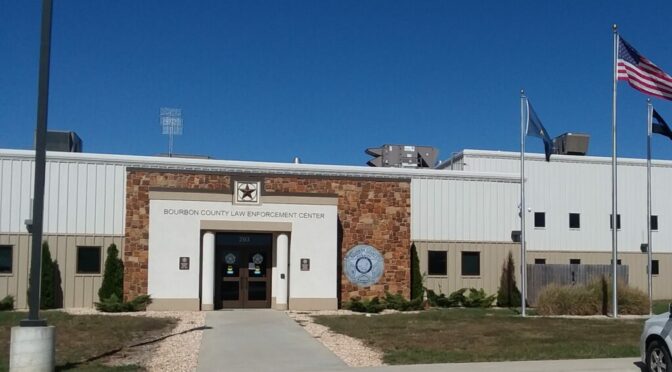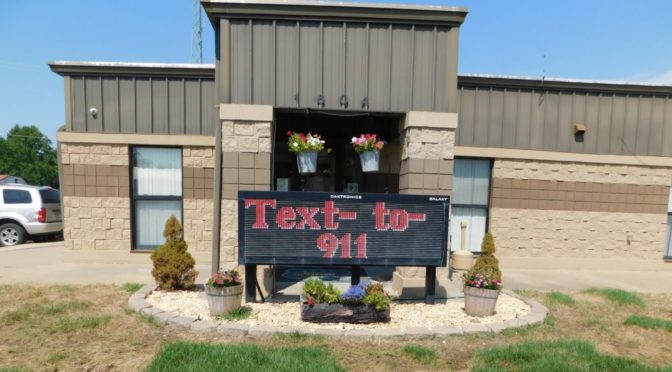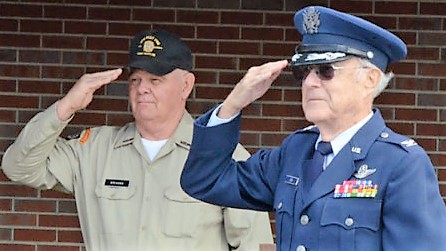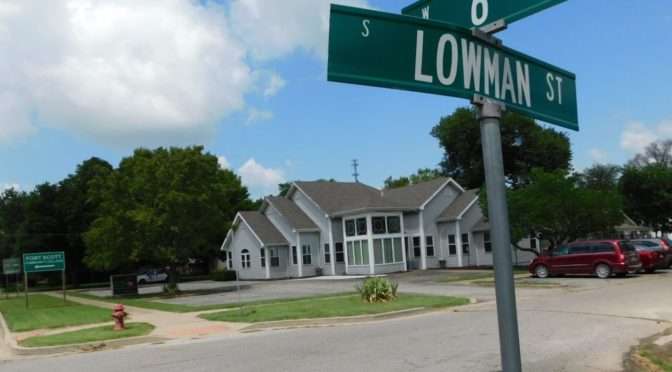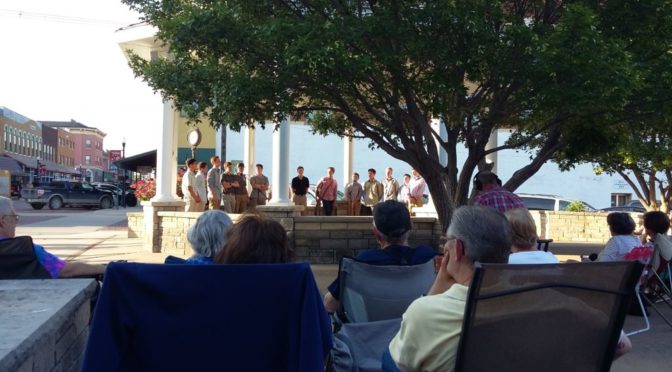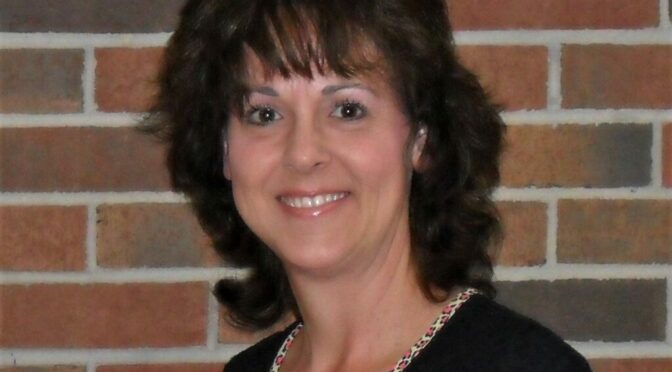All posts by Submitted Story
The Fort Scott Police Department Daily Reports Oct. 5
Obituary of Leonard Braun

Survivors include two sons, Larry Braun, Joshua, TX, and Darren Braun (Kristi), Roff, OK; two daughters, Kristie Modlin, Nevada, MO, and Lisa Tally, Ft. Scott, KS; a brother, Gerald Braun Harrison, AR; a sister, Mary Platt, Olathe, KS; 15 grandchildren, Chanelle Braun (Sean Sellers), Zachary Braun (Antaza), Brandi Braun, Nathan Braun, Rebecca Courtney (Glen), Kelsie Caldwell (Cody), Kendall Sanford, James Thomas, Tristie Thomas, Kyla Thomas, Charles Thomas, Dalton Modlin, Brett Tally, Devin Tally (Jenna Campbell), and Jessie Brown; 17 great grandchildren; and several nieces and nephews.
Pastor Ted Furry will conduct services at 11:30 AM Thursday, October 7th, at the Cheney Witt Chapel.
Pfizer COVID-19 Vaccine Booster Available Locally
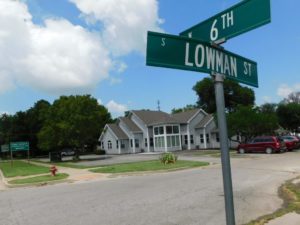
COVID-19 Vaccine booster shots are available for the following Pfizer-BioNTech vaccine recipients who completed their initial series at least 6 months ago and are:
- 65 years and older
- Age 18+ who live in long-term care settings
- Age 18+ who have underlying medical conditions
- Age 18+ who work in high-risk settings
- Age 18+ who live in high-risk settings
Mondays are walk-in days, but otherwise would need to call for an appointment. The Southeast Kansas Multi-Health Department location phone numbers Bourbon: (620)223-4464.
Submitted by
Rebecca Johnson BSN, RN
SEK Multi-County Health Department
Administrator
Ks Division of Child Advocate Established
Governor Laura Kelly Establishes the Division of the Child Advocate to Protect Kansas Children and Families
TOPEKA – Today, Governor Laura Kelly signed Executive Order 21-28 to establish the Division of the Child Advocate – an independent accountability structure to protect Kansas children and families within the child welfare system.
“The establishment of a Child Advocate is a commonsense win for Kansas kids and families,” Governor Kelly said. “For years, our state’s essential family services were neglected and underfunded – leaving our kids and families more vulnerable than ever before. Fixing those systemic problems has been a top priority for my administration, and the Division of the Child Advocate is a significant step forward to ensure every Kansas child is protected from harm.”
The Division of the Child Advocate will act as a centralized entity to:
- Protect Kansas children and families from harm by providing an independent oversight and accountability system for public and private entities involved in child welfare.
- Compile and receive complaints made on behalf of children within the child welfare system.
- Review the practices of agents in the child welfare system.
- Provide nonpartisan, independent reports to the Governor, Legislature, and Judicial Branches each year. These reports will detail the complaints received by the office and provide recommendations to improve services and systems.
- Improve coordination between state agencies, contractors, and partners in the child welfare space to ensure all Kansas children and families receive quality services.
- Educate children and families of their rights and entitlements under state and federal law and serve as a resource for families attempting to navigate the child welfare system.
E.O. 21-28 also creates protections for individuals who make complaints to the Child Advocate to empower state employees to work with the Division and report wrongdoing.
“The Child Advocate will strengthen existing oversight in the child welfare system and provide more accountability for Kansans that receive child welfare related services,” DCF Secretary Laura Howard said. “It is essential that our most vulnerable citizens have an independent advocate they can go to for recourse in the event they feel services were administered incorrectly or inappropriately.”
In addition, the Governor signed Executive Order 21-27, which establishes the Office of Public Advocates (OPA). The OPA will consist of the Division of the Child Advocate, the Long-Term Care Ombudsman, and the KanCare Ombudsman.
To view E.O. 21-27 – please click here.
To view an unsigned copy of E.O. 21-28 – which establishes the Division of the Child Advocate – please click here.
Obituary of Helen Faye Mielke

Helen Faye Mielke, age 63, a resident of Ft. Scott, Kansas, passed away Thursday, September 30, 2021, at the Mercy Hospital in Joplin, Missouri.
She was born June 2, 1958, in Rocky Mountain, North Carolina, the daughter of Chester Eugene Crim and Judy Bass Crim.
Faye married Michael E. Mielke on August 8, 2009, in Ft. Scott.
Faye had worked in customer service at both Digital Lighthouse and Cigna.
She enjoyed gardening, tending her flowers, going to rummage sales and auctions and playing cards.
She was a member of the Lighthouse Tabernacle in Pittsburg, Kansas and had recently been attending Open Door Mission Church in Arcadia, Kansas.
Survivors include her husband, Mike, of the home, two sons, Steven Bailey (Kaytie), of Ft. Scott and Jerry Bailey (April), of Branson, Missouri and two daughters, Suzie Haffer, Orange Beach, Alabama and Hillary Henson, of Osawatomie, Kansas; a step-daughter, Deserie Salazar of Chicago, Illinois, several grandchildren, and a great-grandson. Also surviving are her step-mother, Mary Crim of Holden, Missouri, a brother, Kelly Crim of Holden, Missouri, two sisters, Gail Crim, Olathe, Kansas, and Linda Sieg, of Leavenworth, Kansas and a step-sister, Debbie Wiely and a step-brother, Louis Wiely both of Leavenworth.
She was preceded in death by her father.
There was cremation. A memorial service will be held at 10:30 A.M. Monday, October 11th at the Cheney Witt Chapel.
Memorials are suggested to the Faye Mielke Memorial Fund and may be left in care of the Cheney Witt Chapel, 201 S. Main, P.O. Box 347, Ft. Scott, KS 66701. Words of remembrance may be submitted to the online guestbook at cheneywitt.com.
Friday Night Free Concert: The Prairie Sunflower Strings

The Prairie Sunflower Strings will be the featured entertainment at this week’s Friday Night Concert. The musical group, consisting of six ladies, play traditional folk music on dulcimers, guitar, violin, and autoharp. A few newer songs will also be added into the mix.
“These talented musicians and vocalists have been playing together for about three years,“ concert-series organizer Ralph Carlson said. “Members of The Prairie Sunflower Strings are Cherry Nelson, Joyce Love, and Jean Strader on mountain dulcimers, Charlena Burns on bowed dulcimer, Sandy Hemphill on guitar, violin, and vocals, and Marilyn Adcock on autoharp and vocals. We are very pleased to welcome these gifted ladies back to the park pavilion. Come out and join us for a fun opportunity to see friends and enjoy some unique music.“
The concert begins at 7 p.m. at the Heritage Park Pavilion at First and Main streets. The shows, sponsored by the Fort Scott Area Chamber of Commerce, are free and open to the public. Dave Oas of Parsons serves as sound technician each week. Due to limited seating, attendees are encouraged to bring lawn chairs.
In the event of inclement weather, the concert will be moved to the Common Ground Coffee Co., 12 E. Wall Street.
The Bourbon County Sheriff’s Office Daily Reports Oct. 4
The Fort Scott Police Department Daily Reports Oct. 1-3
Dragged Through a Knothole Backwards by Carolyn Tucker
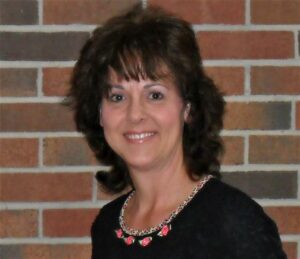
Keys to the Kingdom by Carolyn Tucker
My daughter was engaged for a year before her marriage in 2009, so we had 12 months to have fun planning and shopping for the wedding. Seriously, during that year everything was stress-free and very pleasant for me. But the actual day of the wedding was a different story just because of nerves. When I got home, I felt like I’d been dragged through a knothole backwards. Knotholes come in all different shapes and sizes. Believe me, there’s one out there with your name on it. If you live long enough, you’ll eventually have to deal with at least one. During those times, Jesus says, “Come to Me, all of you who are weary and carry heavy burdens, and I will give you rest” (Matthew 11:28 NLT).
From personal experience, I need three types of rest: physical, spiritual, and emotional. When God says to come to Him and He will give you rest, that’s exactly what He means. God’s got what we need — He’s simply waiting for us to meet His conditions in order to receive the rest we require. Then Jesus said to His disciples, “Have faith in God. I tell you the truth, you can say to this mountain, ‘May you be lifted up and thrown into the sea,’ and it will happen. But you must really believe it will happen and have no doubt in your heart. I tell you, you can pray for anything, and if you believe that you’ve received it, it will be yours (Mark 11:22-24 NLT). I’ve never needed to change the terrain, but Jesus is using a vivid word picture to teach believers that we must have great faith in order to slam the door on doubt and move our problems on out.
If I live an exhausted physical lifestyle because I’m running full throttle in the fast lane and not ever getting enough sleep or rest, God isn’t obligated to help me because I’m intentionally operating in stupid mode. But if we‘re tired because we’re the caregiver for aging parents, ill family members, etc., God will supply us with the energy and ability to do what needs to be done. “My grace is all you need, for My power is greatest when you are weak” (2 Corinthians 12:9 GNT).
If my spiritual well is dry, I can’t offer water to anyone that’s thirsty. Paul prayed for spiritual growth for the Ephesus believers, and it’s also for us. “I pray that from His glorious, unlimited resources He will empower you with inner strength through His Spirit. Then Christ will make His home in your hearts as you trust him. Your roots will grow down into God’s love and keep you strong. And may you have the power to understand, as all God’s people should, how wide, how long, how high, and how deep His love is. May you experience the love of Christ, though it is too great to understand fully. Then you will be made complete with all the fullness of life and power that comes from God. Now all glory to God, who is able, through His mighty power at work within us, to accomplish infinitely more than we might ask or think” (Ephesians 5:16-20 NLT).
Paul also wrote to the church in Philippi regarding emotional rest. “Don’t worry about anything; instead, pray about everything. Tell God what you need, and thank Him for all He has done. Then you will experience God’s peace, which exceeds anything we can understand. His peace will guard your hearts and minds as you live in Christ Jesus“ (Philippians 4:6,7 NLT).
The Key: When your personalized knothole arrives, you need to be able to crawl through it and come out sunny-side up.
Real Estate Tax Potpourri by Gregg Motley
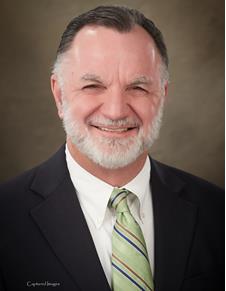
According to kansaspolicy.org, the population of Kansas has risen 11% since 1997; during the same period, the rate of inflation was 53% and the average county in Kansas raised property taxes by 180%. Bourbon County was right at the state average, while shrinking about 5.5%.
Here is how some of our neighboring counties fared since 1997:
County Tax Change Mill Change
Allen 321% 81%
Anderson 236% 59%
Bourbon 180% 53%
Crawford 147% 33%
Linn 223% 71%
Here are a few of the highest and lowest around the state:
Douglas 399% 88%
Harper 67% -6%
Lane -1% -42%
Mitchell 428% 119%
Rice 88% -14%
The new “Truth in Taxation” law that was signed by the governor in 2020 went into effect this year. In essence, the law says that government entities that rely upon real estate tax revenue must set a revenue-neutral mill levy every year, unless they hold a public hearing to inform voters. What this means is that when the total assessed valuation of a county goes up, the mill levy must be dropped in order to avoid collecting more taxes.
Do you think businesses consider these numbers when selecting their next location? Do potential new residents? Common sense would tell us, “Yes.”
Related to real estate taxes is the issue of delinquent taxes. The recent list of tardy property owners published in the local newspaper raised quite a stir. Statutes exist that set the rules as to when a jurisdiction can sell a property to collect the past due levies.
Unfortunately for small counties, the cost to follow legal procedures to foreclose upon and sell the properties in question can cost more than the total auction prices achieved.
Yes, the beginning of the process can awaken an owner into action and more taxes are collected. During the proceedings, property owners must pay their taxes plus penalties, or face losing their properties; however, we need to consider all the implications, including the foreclosure economics and the cost to own foreclosed property.
I would be much more interested in strong code enforcement that brings attention to problems before a building collapses and costs our government even more money.
Last point, some elected officials are of a mindset that small tax decreases will not be noticed by property owners and are a meaningless gesture. It is the same mentality that caused the continual tax increases in the first place that totaled over three times the rate of inflation.
We need to think about the long-term and the cumulative impact of mill levy changes. Let’s start a downward trend, no matter how small, and keep revenue increases at or below the rate of inflation.
Attitude – Not Just a Little Thing
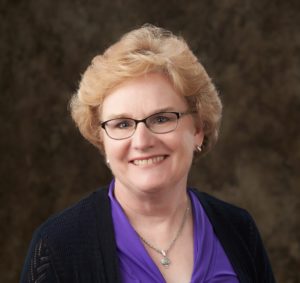
”Attitude is a little thing that makes a big difference…Winston Churchill.” We’ve heard it before –attitude is everything!
There are a lot of things that can contribute to a long, happy life. Our hope is that our bodies will age with us in good form as we grow older. We reinforce that concept by encouraging the need to take care of ourselves through a healthful diet, keeping physically active, and challenging ourselves over the lifespan – our minds in particular.
By the time we have reached the last third of our life we have seen and experienced a lot of changes. Along the way, we will learn to compensate in order to attain our goals. We may not bend and move like we once did, but we will still get the job done one way or another. Even if it involves asking for help, we will likely achieve the task.
What does attitude have to do with the aging process? Research shows that going about life with a more positive outlook can add 7 ½ years to your life, according to K-State Research and Extension specialist on aging, Erin Yelland. When you consider the average U.S. life expectancy is 78.5 years, that calculates to your attitude having an almost 10% effect on your life span. That is a considerable factor!
How can we go about fostering a more positive attitude?
–Start your day on a positive note. Think about what you are grateful for when you first wake up. If there is something you find particularly uplifting, spend a few moments with that.
–Focus on the good. Bad things happen at times, but if we really take time to look at those instances, we can usually find something positive from each situation.
–Embrace life’s challenges. Our personal aging process may not always be the process we would like – being more difficult at times than others. We can be okay with that if we adjust our expectations and take advantage of that compensation or assistance I mentioned earlier.
–Surround yourself with positive people. The outlooks and attitudes of those we hang around with often rub off on us in subtle ways. What better way to infuse positivity in your life?
–Choose to be happy. Happiness is what we all ultimately strive for. It’s a deep need in our being. not only for ourselves, but for those around us. Remember those positive people in your circle.
–Be gracious, helpful and kind. We have a need to feel needed – something that gives us purpose in life. What is your reason for getting out of bed? Having a positive impact on someone else could help you change your own outlook. Acts of kindness can boost your mood and help in creating a more optimistic attitude.
It takes practice to develop positivity. However, if we keep striving for positivity, we are more likely to make changes and implement healthy behaviors that will help us be more successful in the aging process.
I’m reminded of a Peanuts© cartoon quote: “Attitude is contagious… is yours worth catching?”
For more information and guidance on aging well, call 620-625-8620.
K-State Research and Extension is an equal opportunity provider and employer.
